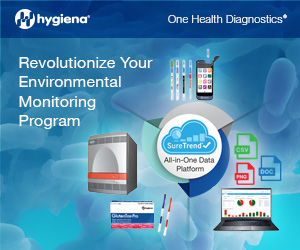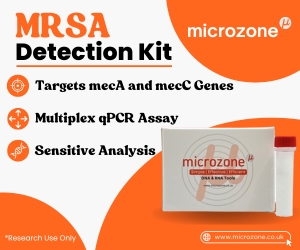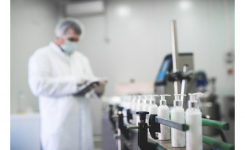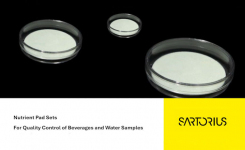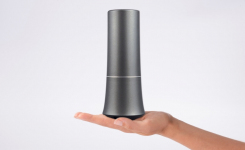Abbott Introduces Biothreat Assay for PLEX-ID™ System
go back to news archives| Abbott has introduced the PLEX-ID™ Biothreat Assay, which is designed to detect and distinguish 17 different biothreat pathogens. This assay enables rapid and accurate detection of potentially dangerous microorganisms that could pose serious threats to human health, food, water and other resources. The PLEX-ID Biothreat Assay permits analysis of direct specimens, such as blood, water, food and air filter samples, and provides results in less than eight hours. Seventeen different bioagents are targeted in the new test, including Bacillus anthracis, E. coli, salmonella, ebola virus, and avian influenza viruses. PLEX-ID offers the unique capability to detect and identify these, and other, bacterial and viral biothreat agents while also differentiating similar organisms. Research on the biothreat assay was presented at the American Society for Microbiology Conference on Biodefense and Emerging Diseases. In a poster presented at the conference, Abbott and the Midwest Research Institute reported that an independent evaluation of the PLEX-ID Biothreat Assay showed it provides highly sensitive and specific results for biothreat detection in environmental air sample analysis. The PLEX-ID system can perform identification and typing of expected and unknown microorganisms from direct specimens, which saves time while providing critical information without the need to grow the agent in culture first. |
NOTE: This item is from our 'historic' database and
may contain information which is not up to date.
Source : Abbott Laboratories View Company Information
Posted on February 15, 2011
LATEST MICROBIOLOGY NEWS
-
New Self-collection Devices from MWE
01 Jul 2025
MICROBIOLOGY EVENTS
-
AI for Food Safety Professionals
8 Jul 2025 -
Main Challenges in Allergen Testing and How to Overcome Them
9 Jul 2025 -
Getting Equipped for the Future with the New MAS-100 Sirius® Microbial Air Sampler
10 Jul 2025 -
Unmasking Endotoxins: A Sample Preparation Strategy to Overcome LER
15 Jul 2025 -
IAFP 2025
27 Jul 2025 -
ADLM 2025
27 Jul 2025 -
Food Safety Culture Workshop
9 Sep 2025 -
Who are the "Real" Spoilers in Food?
11 Sep 2025 -
CPD accredited course: Level 3 HACCP & Food Safety
15 Sep 2025 -
Culture Eats HACCP for Breakfast (free)
On-demand Webinar



